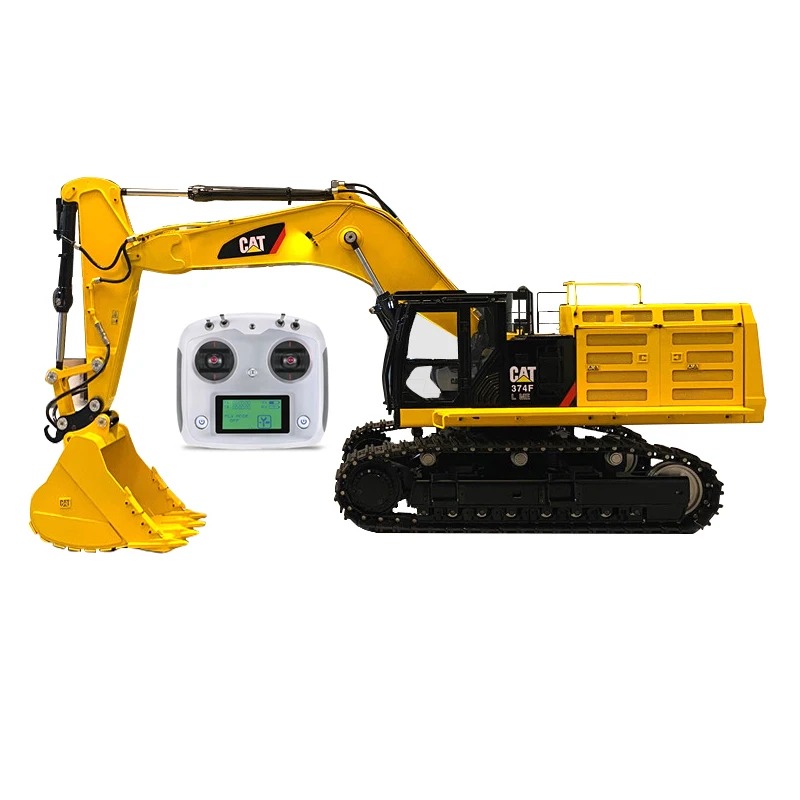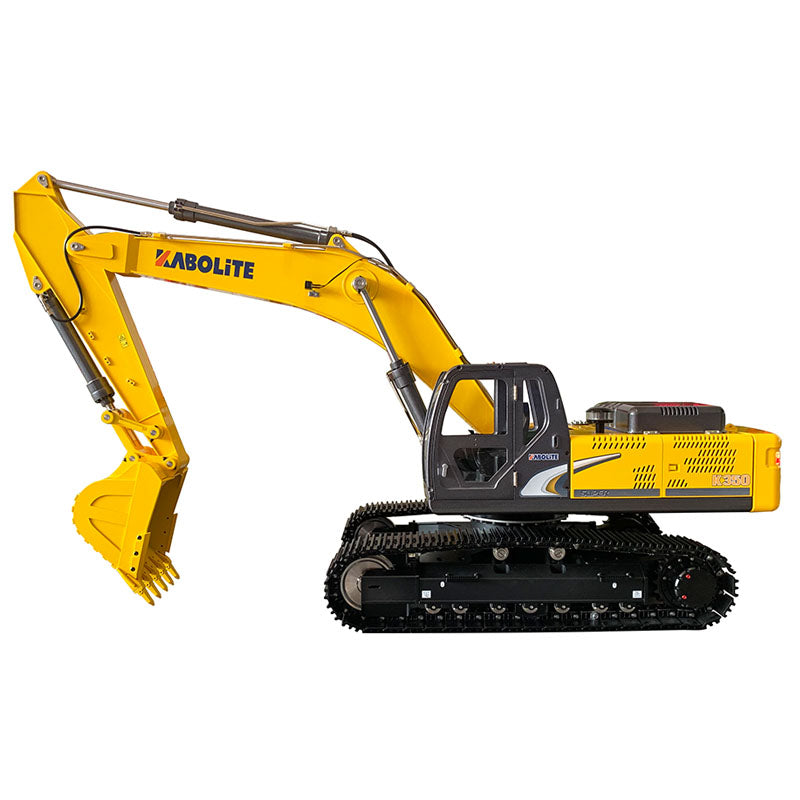Discover the Importance of Excavator in Modern Building And Construction Projects
Excavators are important devices in modern building and construction projects. Their adaptability enables them to carry out a large range of tasks, from excavating and grading to demolition and website prep work. Advanced functions, such as hydraulic attachments and GPS, enhance their capabilities and performance on work sites. As the sector evolves, the importance of excavators grows much more. Understanding their role can expose understandings right into the future of building and construction practices. What exists ahead for these machines?
The Versatility of Excavators in Numerous Projects
Excavators are often connected with large-scale building tasks, their flexibility allows them to be made use of in a vast array of applications, from household landscaping to utility upkeep. In urban settings, excavators can navigate limited areas to dig structures for homes or install water drainage systems. Their capability to carry out fragile jobs makes them excellent for landscape design jobs, where they can excavate for ponds or plant trees. Furthermore, excavators play an important function in energy maintenance, successfully digging trenches for pipes or cables without interfering with bordering locations. In farming applications, they aid in land cleaning and soil prep work. Their adaptability allows them to be geared up with different attachments, improving their capability across different tasks. This multifaceted nature of excavators not just enhances different building and construction processes but also shows their essential duty in modern-day framework development and upkeep.
Secret Functions and Sorts Of Excavators
The conversation on key attributes and sorts of excavators highlights the vital characteristics that make these machines important in building. Numerous excavator kinds, each created for details jobs, show their flexibility and efficiency across various applications. rc excavator. Comprehending these features and categories is important for optimizing their usage in modern-day building projects
Excavator Types Review
Excavators play a critical duty in contemporary construction, providing adaptability and effectiveness across various jobs. These heavy machinery devices been available in a number of types, each customized for details applications. The most usual types consist of spider excavators, recognized for their stability on irregular surface, and rolled excavators, which provide better movement on paved surfaces. Small excavators are favored for small-scale jobs and limited spaces, while long-reach excavators are designed for deep digging. Additionally, there are specialized excavators, such as hydraulic excavators, which boost power and accuracy. Each type includes unique capabilities, making them important for jobs ranging from excavating and grading to demolition and material handling. Understanding these variants enables building and construction experts to pick the right excavator for their task needs.
Key Features Explained
Recognizing the vital features of excavators boosts their effective application in building and construction jobs. Excavators are characterized by their effective hydraulic systems, which supply the needed force for excavating, lifting, and moving products. Their expressed arms allow for a vast array of activity, facilitating specific operations in restricted rooms. In addition, the range of add-ons, such as pails, grapples, and augers, broadens their versatility to meet various task needs. The size and weight of excavators also add to their security and maneuverability on various terrains. Innovations in technology have led to the assimilation of GPS and automation, improving accuracy and performance in excavation tasks. These functions collectively position excavators as important devices in contemporary construction.
Applications in Building
Transforming construction sites, excavators play a pivotal role throughout different applications, ranging from residential structure projects to massive infrastructure developments. These flexible devices are outfitted for tasks such as excavating structures, trenching for utilities, and site grading. Various types of excavators, consisting of spider, wheeled, and mini excavators, supply specific benefits customized to the task demands. Spider excavators succeed in rough terrains, while wheeled excavators provide flexibility on smooth surfaces. Mini excavators are ideal for constrained spaces, making them prominent in urban settings. The efficiency and power of excavators considerably quicken building and construction procedures, making sure prompt task completion. Their adaptability further enhances their relevance, permitting building teams to deal with a diverse array of obstacles effectively.
Enhancing Efficiency and Performance on Work Sites
Optimizing efficiency and performance on job websites is a vital goal in modern building. Excavators play a crucial duty in achieving this goal by improving different jobs. Their capability to carry out multiple features-- such as digging, grading, and lifting-- minimizes the requirement for extra tools, consequently saving time and resources.Moreover, excavators enhance workflow by enabling faster completion of tasks. With advanced functions like hydraulic add-ons and general practitioners technology, they can execute precise operations that lessen mistakes and revamp. This precision not just enhances the quality of work however also enhances material use, adding to cost savings.The flexibility of excavators permits them to adjust to different website conditions, making sure that projects progress efficiently no matter of obstacles. By incorporating excavators right into building procedures, teams can significantly enhance their overall performance, causing timely project completion and increased success.
Safety And Security Benefits of Making Use Of Excavators
Excavators substantially boost safety on building and construction websites via boosted driver presence and decreased manual work threats. By supplying drivers with a clear view of their surroundings, excavators assist to avoid injuries and crashes. In addition, the machinery decreases the need for workers to participate in harmful hands-on jobs, further advertising a much safer job setting.
Boosted Driver Exposure
Building sites can be chaotic and filled with prospective risks, boosted driver presence plays an important function in making certain safety when using excavators. Modern excavators are created with large, unhampered windows and strategically placed mirrors, allowing drivers to maintain a clear sight of their environments (rc excavator). This boosted presence is crucial for identifying pedestrians, various other machinery, and numerous challenges, considerably decreasing the risk of accidents. Furthermore, numerous excavators incorporate sophisticated her comment is here modern technology, such as video cameras and sensing units, to give operators with additional perspectives, even more enhancing awareness. The capability to see more clearly not just help in efficient procedure however additionally fosters a much safer workplace, making it less complicated for drivers to browse complicated building and construction sites without endangering safety and security standards
Minimized Manual Work Dangers
When hands-on labor is minimized via making use of excavators, countless security advantages arise, markedly boosting the health of building and construction employees. Excavators reduce the physical strain related to hefty lifting and repeated tasks, successfully decreasing the threat of musculoskeletal injuries. By automating processes such as digging, grading, and relocating materials, they allow workers to preserve a safer distance from possible threats. Furthermore, excavators are outfitted with advanced security functions, such as rollover defense systems and boosted driver functional designs, which additionally guard workers on site. The outcome is a considerable decrease in work environment mishaps and injuries, leading to increased productivity and spirits amongst building and construction groups. Eventually, the fostering of excavators adds to a much safer and extra efficient building and construction setting.
Excavators in Earthmoving and Website Preparation
In contemporary building, a significant part of earthmoving and website prep work jobs depends on the effectiveness and convenience of excavators. These makers are made to handle various dirt types and surface, making them vital for rating, digging, and trenching tasks. Their hydraulic arms can be outfitted with different attachments, such as pails and augers, allowing drivers to personalize their technique based on certain job requirements.Excavators stand out at relocating huge volumes of planet rapidly and successfully, which speeds up the overall building and construction timeline. They can navigate limited rooms and testing sites where conventional tools might battle, improving productivity. Additionally, the accuracy of excavators assurances that his response website preparation adheres to strict requirements, reducing the threat of errors that might lead to expensive rework.
The Function of Excavators in Demolition Tasks
Excavators play a vital duty in demolition tasks, as they have the power and agility needed to take down frameworks effectively. Equipped with various add-ons such as hydraulic breakers, shears, and grapples, these machines can adjust to different demolition demands, whether for tiny structures or big industrial websites. Their flexibility enables operators to deal with complicated projects while keeping safety and security and precision.In addition to their demolition abilities, excavators promote debris elimination, ensuring that work sites remain well organized and risk-free. By breaking down structures right into manageable items, they enable structured cleaning and recycling of products, lining up with contemporary sustainability efforts.Moreover, excavators can access tight rooms and navigate irregular surface, making them essential in urban demolition projects. Overall, their durable layout and multifunctionality make excavators a vital property in the demolition phase of building and construction, contributing significantly to project timelines and performance.


Future Fads in Excavator Innovation and Use
As the building market progresses, improvements in excavator innovation are poised to change their use and performance noticeably. One considerable pattern is the integration of automation and expert system, permitting excavators to operate with very little human intervention. This change will certainly enhance accuracy in tasks such as grading and trenching, reducing human mistake and boosting productivity.Additionally, the rise of electric and hybrid excavators is shaping a more sustainable building setting, reducing carbon emissions and gas her response prices. Boosted telematics systems are also arising, allowing real-time monitoring of maker performance and maintenance needs, which can result in better functional effectiveness and longer devices lifespan.Moreover, developments in accessory technology are increasing the flexibility of excavators, enabling them to do a broader series of jobs. The mix of these trends demonstrates a future where excavators are smarter, greener, and much more adaptable, inevitably reshaping building task characteristics.
Regularly Asked Inquiries
How Do Excavators Compare to Various Other Building And Construction Machinery?
Excavators, identified by their adaptability and power, excel in excavating and earthmoving contrasted to other machinery. Their ability to execute various tasks, consisting of training and demolition, makes them important in construction projects, improving general performance.

What Is the Ordinary Life-span of an Excavator?
The typical life expectancy of an excavator generally ranges from 7,000 to 10,000 operating hours, relying on upkeep, use conditions, and model. Correct care can prolong this life expectancy, making sure peak efficiency throughout its functional years.
How Are Excavators Kept for Optimal Efficiency?
Excavators need normal maintenance for peak performance, consisting of regular assessments, liquid checks, filter replacements, and timely fixings. Executing a precautionary maintenance routine aids extend their lifespan and guarantees efficient procedure in various construction environments.
What Are the Prices Connected With Buying an excavator vs. renting?
The expenses related to renting versus acquiring an excavator vary considerably. Leasing offers reduced upfront expenditures yet can gather over time, while acquiring requires a substantial first investment, but offers long-term cost savings and property ownership advantages.
What Training Is Called For to Run an Excavator?
Operating an excavator requires specialized training, generally consisting of security protocols, equipment procedure strategies, and environmental understanding. Accreditation programs usually mandate functional experience, making it possible for operators to manage numerous tasks effectively while ensuring conformity with sector guidelines. The most typical kinds consist of spider excavators, understood for their stability on unequal surface, and rolled excavators, which provide better movement on smooth surface areas. Miniature excavators are favored for small-scale tasks and limited spaces, while long-reach excavators are developed for deep excavating. Furthermore, there are customized excavators, such as hydraulic excavators, which improve power and accuracy. Different kinds of excavators, consisting of crawler, wheeled, and mini excavators, provide specific advantages customized to the project needs. Crawler excavators succeed in harsh terrains, while rolled excavators use mobility on smooth surface areas.